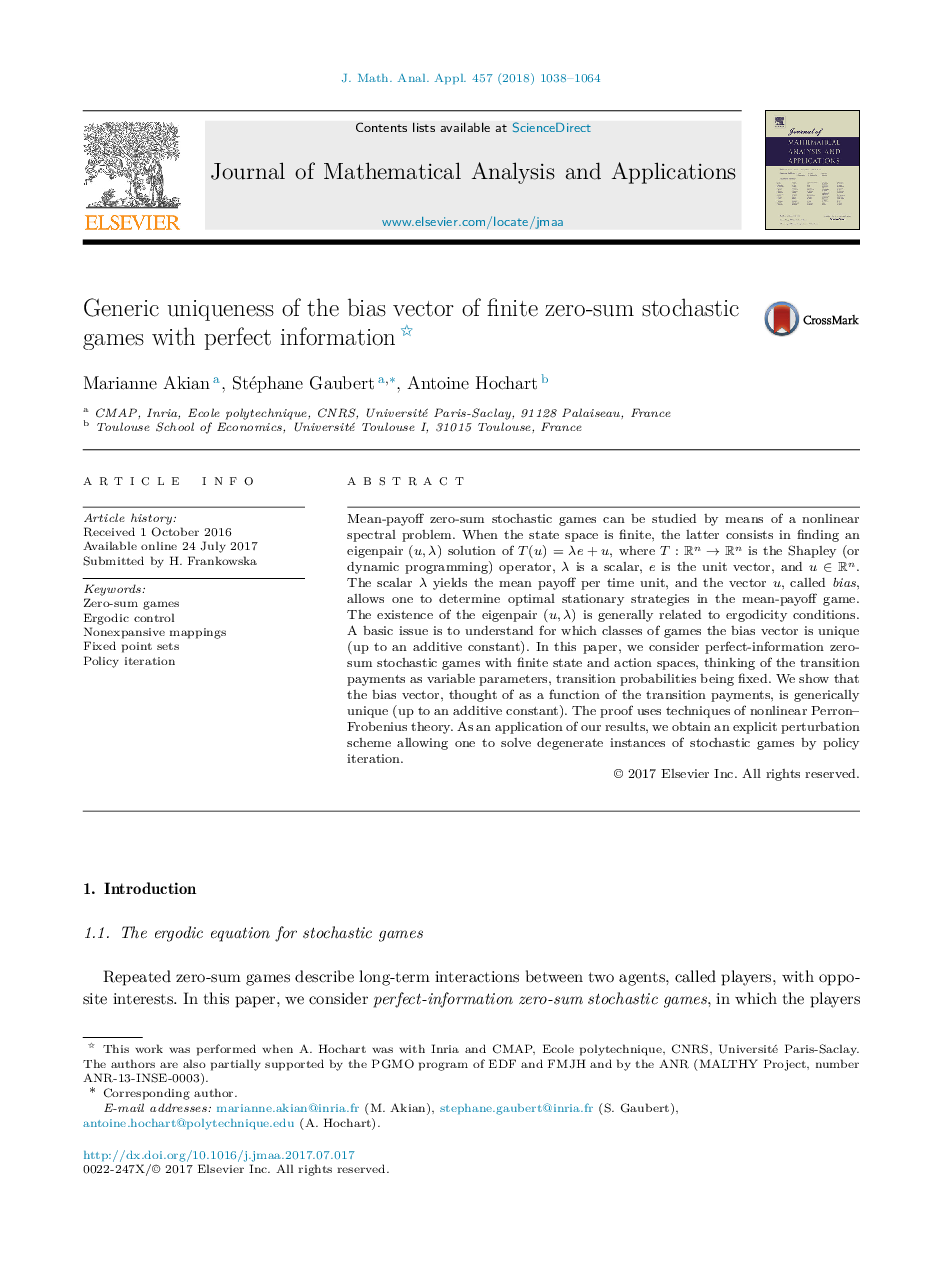| Article ID | Journal | Published Year | Pages | File Type |
|---|---|---|---|---|
| 5774386 | Journal of Mathematical Analysis and Applications | 2018 | 27 Pages |
Mean-payoff zero-sum stochastic games can be studied by means of a nonlinear spectral problem. When the state space is finite, the latter consists in finding an eigenpair (u,λ) solution of T(u)=λe+u, where T:RnâRn is the Shapley (or dynamic programming) operator, λ is a scalar, e is the unit vector, and uâRn. The scalar λ yields the mean payoff per time unit, and the vector u, called bias, allows one to determine optimal stationary strategies in the mean-payoff game. The existence of the eigenpair (u,λ) is generally related to ergodicity conditions. A basic issue is to understand for which classes of games the bias vector is unique (up to an additive constant). In this paper, we consider perfect-information zero-sum stochastic games with finite state and action spaces, thinking of the transition payments as variable parameters, transition probabilities being fixed. We show that the bias vector, thought of as a function of the transition payments, is generically unique (up to an additive constant). The proof uses techniques of nonlinear Perron-Frobenius theory. As an application of our results, we obtain an explicit perturbation scheme allowing one to solve degenerate instances of stochastic games by policy iteration.
